
From the Archives: Council of Muslim Communities of Canada, forebearers of Muslim civil society
March 1, 2024
Drawing from newly acquired records donated to the Muslims in Canada Archives, we invite you to reflect on the histories and role of Muslim civil society in Canada.
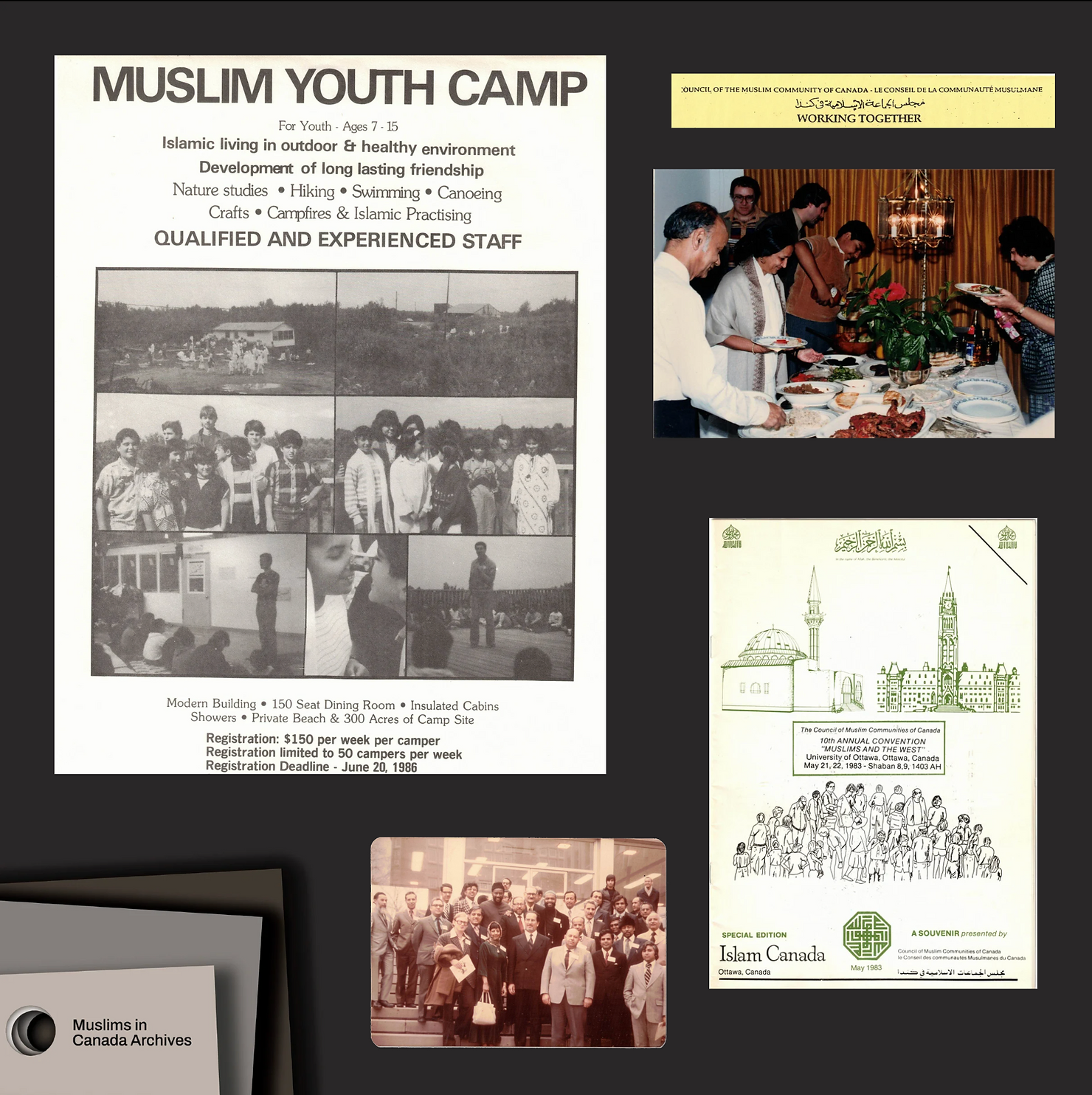
In the early 1960s and with the introduction of the Immigration Act in 1967, new groups of Muslims immigrated to Canada, adding to a mosaic of communities and leading to the establishment of Muslim organizations across the country. In 1972 and 1973, a series of meetings were held among representatives of local and regional Muslim communities from across Canada that led to the ratification of a constitution in Toronto for the Council of Muslim Communities of Canada (CMCC).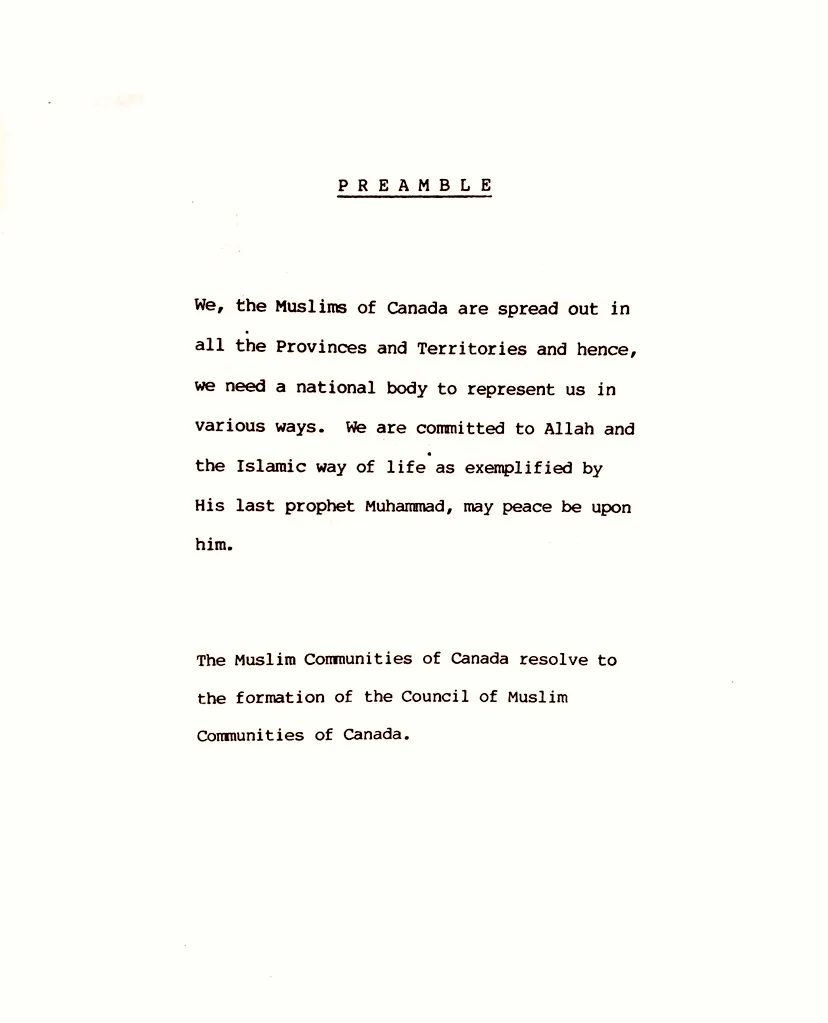 Preamble document of Council of Muslim Communities of Canada (n.d.), Courtesy of Ahmet Fuad Sahin fonds (F2022-01)
Preamble document of Council of Muslim Communities of Canada (n.d.), Courtesy of Ahmet Fuad Sahin fonds (F2022-01)
This was a very different time. Unlike today, planning and organizing was done in person and over written letters. Meetings happened regularly and were light social affairs that took place in family rooms and around kitchen tables, oftentimes going late into the night. Whole families were involved. The Council grew, as Fuad Sahin wrote, out of a need for a “conciliatory body” and “consultative council” in which “Muslims living in Canada were able to communicate with each other with greater ease and confidence [and] … plan together”.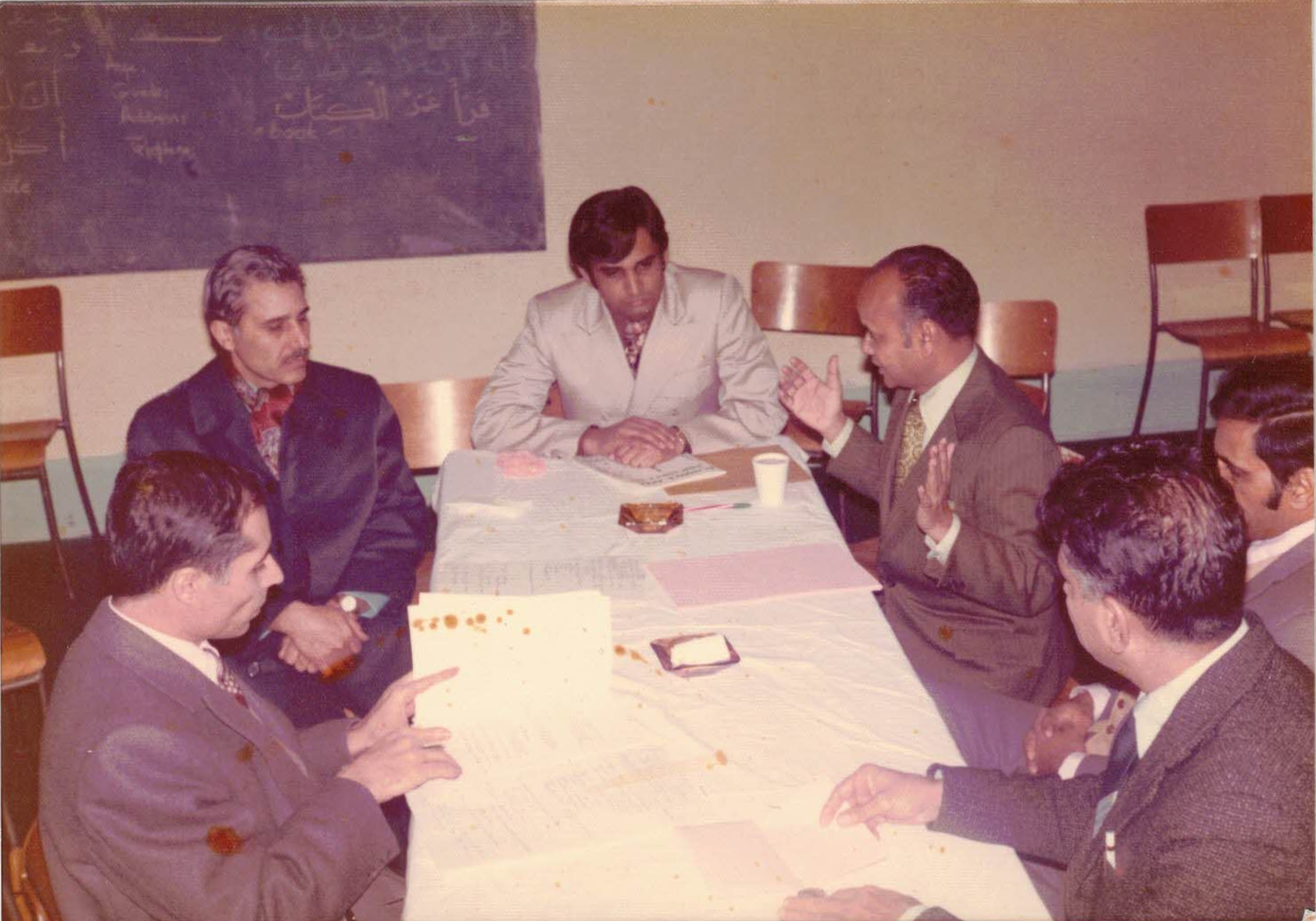
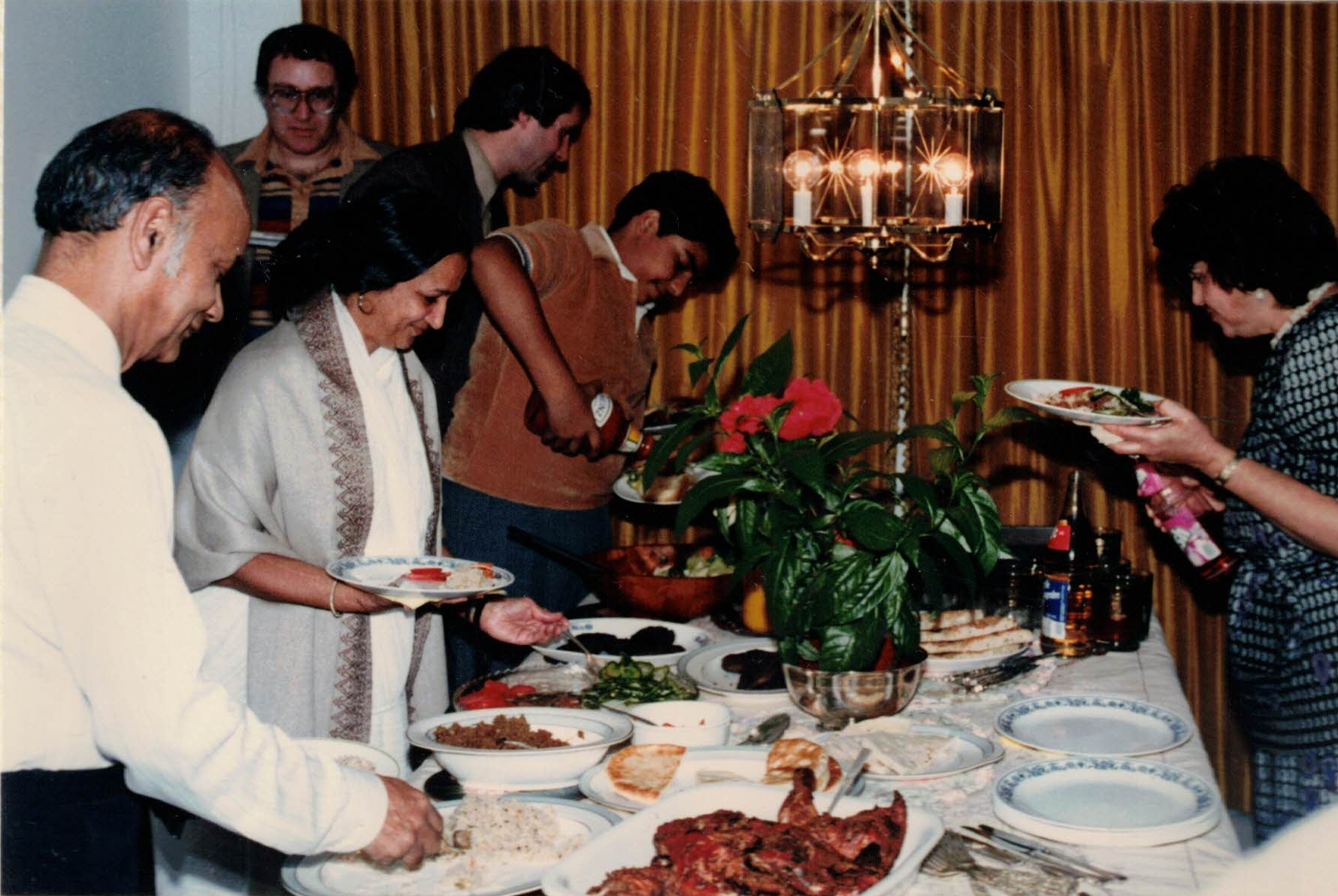 Photographs from photo album of CMCC-related meetings and events (n.d.), Courtesy of Muinuddin Family fonds (F2024-02)
Photographs from photo album of CMCC-related meetings and events (n.d.), Courtesy of Muinuddin Family fonds (F2024-02)
A national scope that still bears imprint today
Although several Muslim community organizations existed before CMCC, nothing had existed like it in terms of scope and reach. So as far as the history of Muslim organizing and civil society in Canada goes, it’s impossible to leave the CMCC out from any conversation. It was one of the first such organizations to take a national and inclusive approach, convening at its height over fifty distinct Muslim communities from more than ten cities across Canada. In the 1970s the Council was the most important national Muslim organization and became a significant voice for Muslims living in Canada.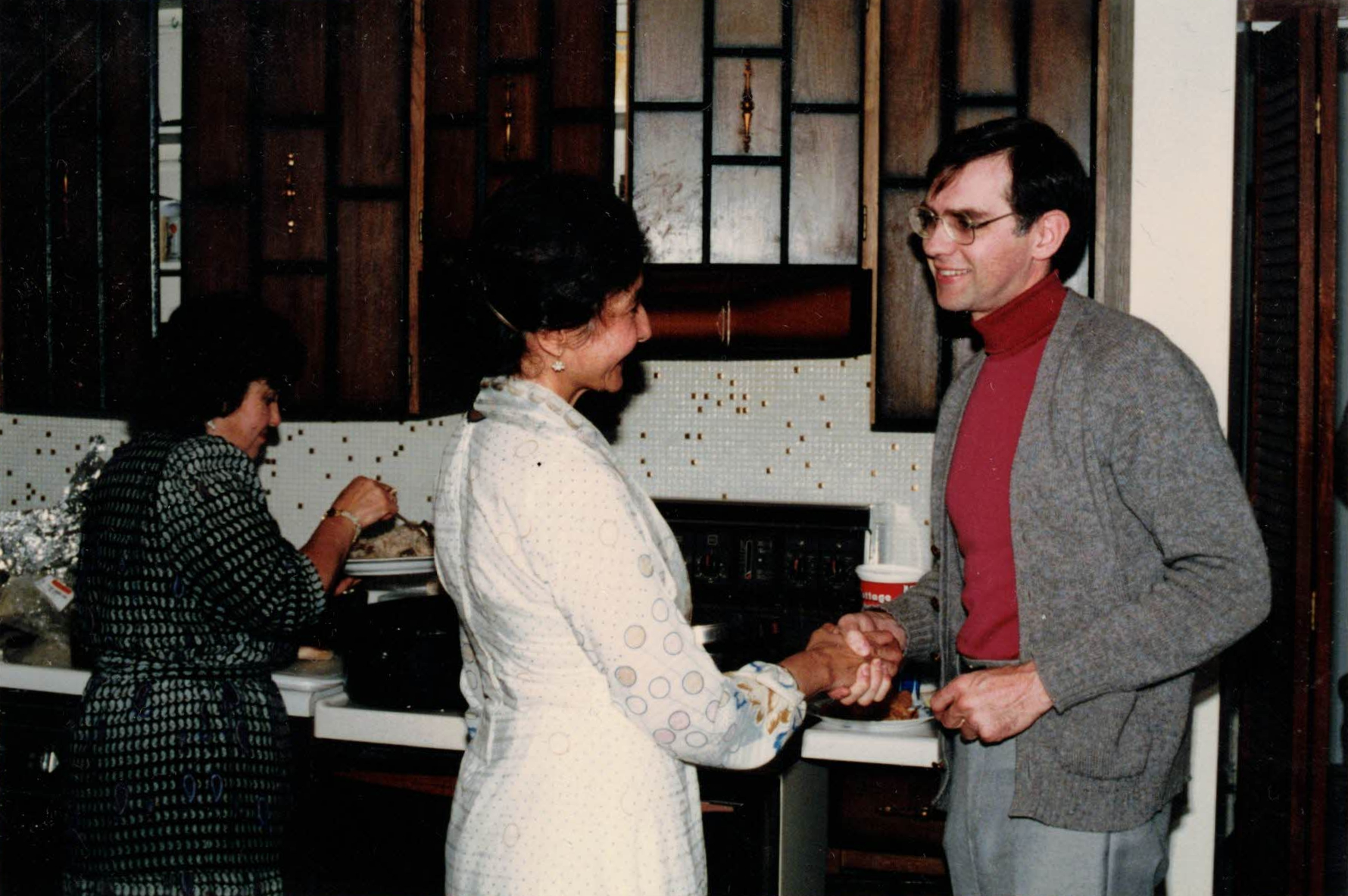
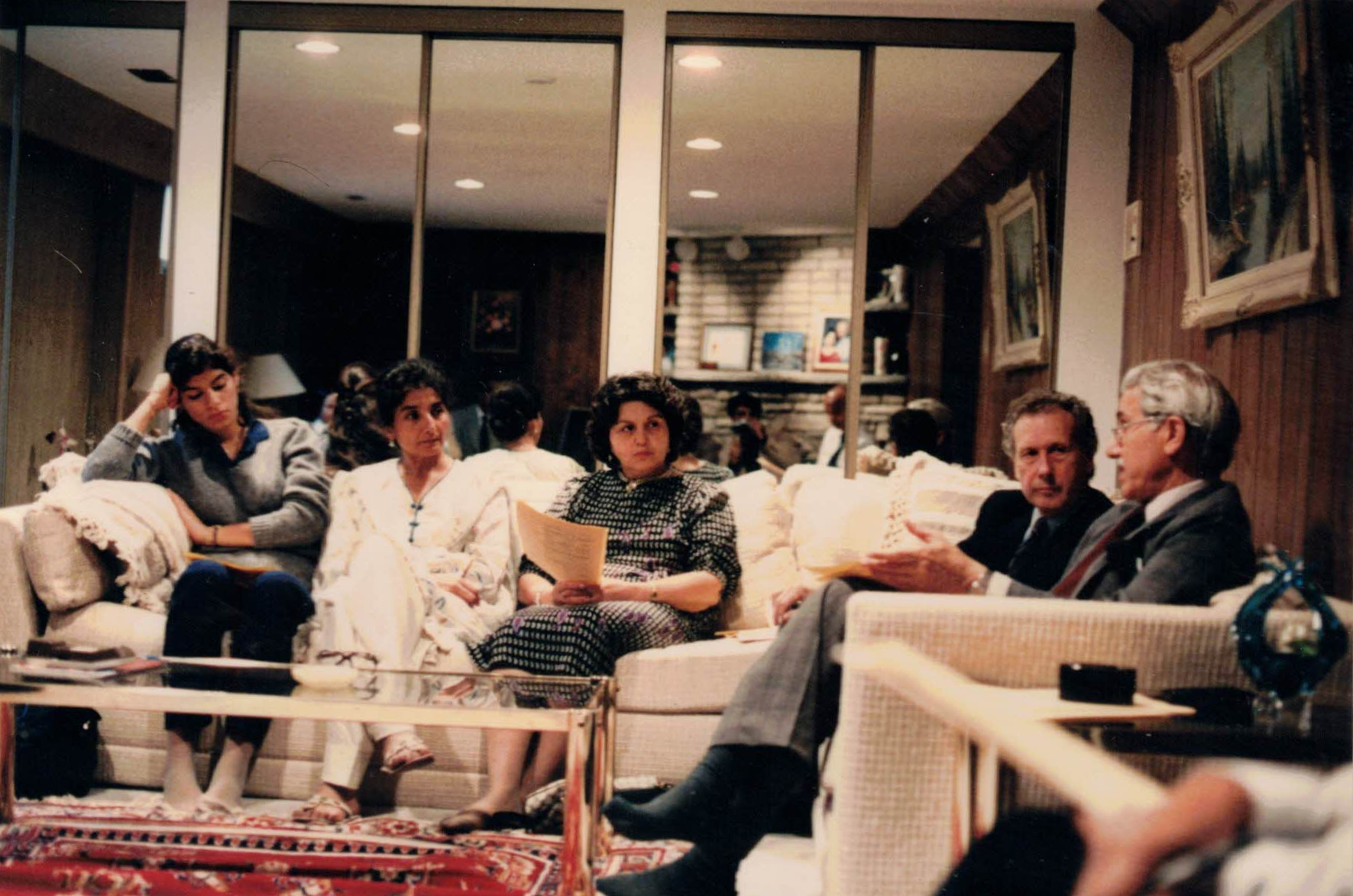 Photographs from photo album of CMCC-related meetings and events (n.d.), Courtesy of Muinuddin Family fonds (F2024-02)
Photographs from photo album of CMCC-related meetings and events (n.d.), Courtesy of Muinuddin Family fonds (F2024-02)
From the beginning the Council undertook special initiatives in service of different segments of the Muslim community. It was the tree that bore such fruits as Camp Deen (formerly Camp Al-Mu-mee-neen), the International Development and Relief Foundation (IDRF), and the Canadian Council of Muslim Women (CCMW). Each of these initiatives continue to exist today and have grown considerably. Camp Deen, a retreat for youth that was part of the Council’s extensive youth programming and strategy that also included a cultural exchange program, celebrates its fortieth anniversary this year (2024).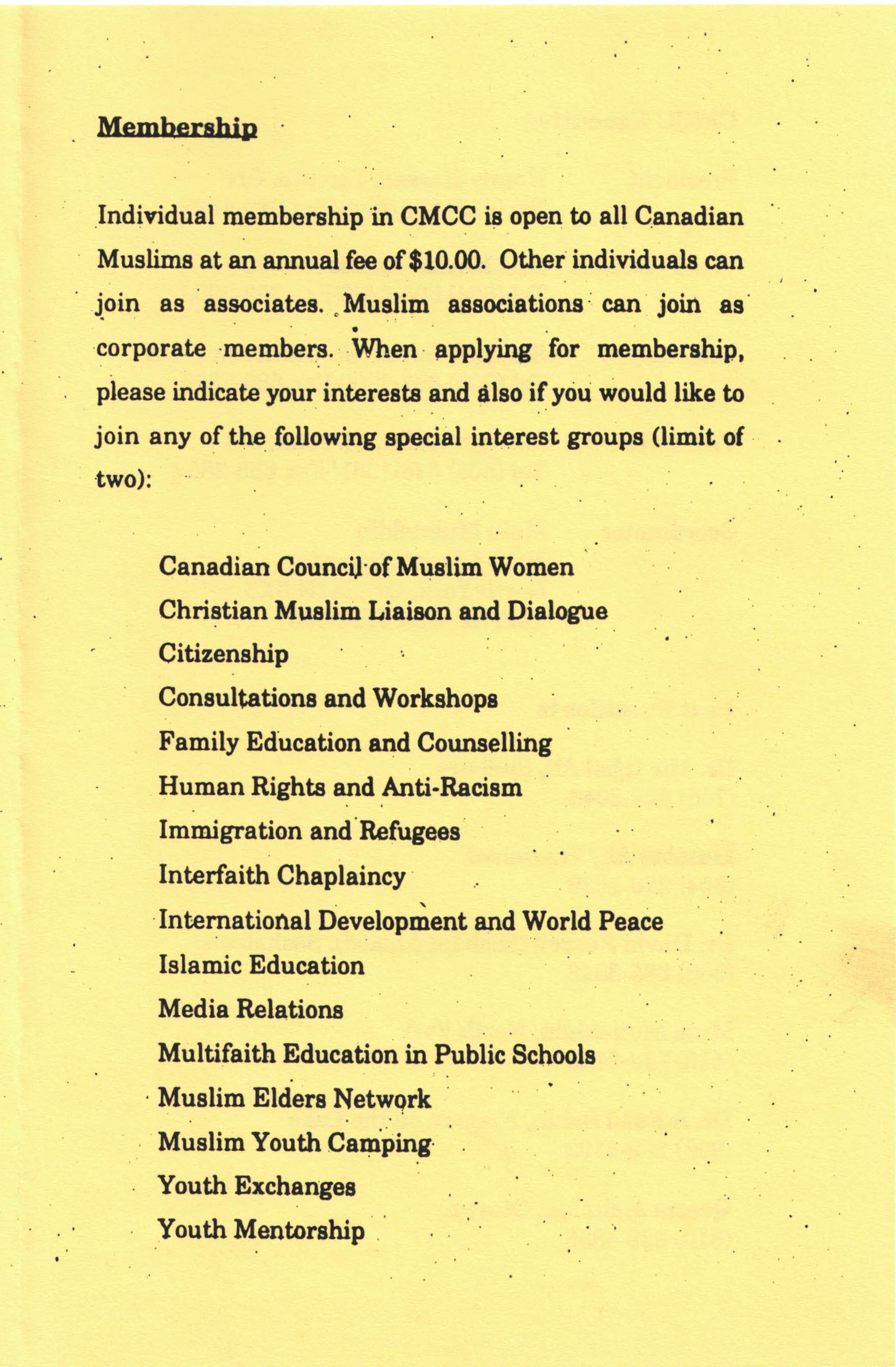 Courtesy of Muinuddin Family fonds (F2024-02)
Courtesy of Muinuddin Family fonds (F2024-02)
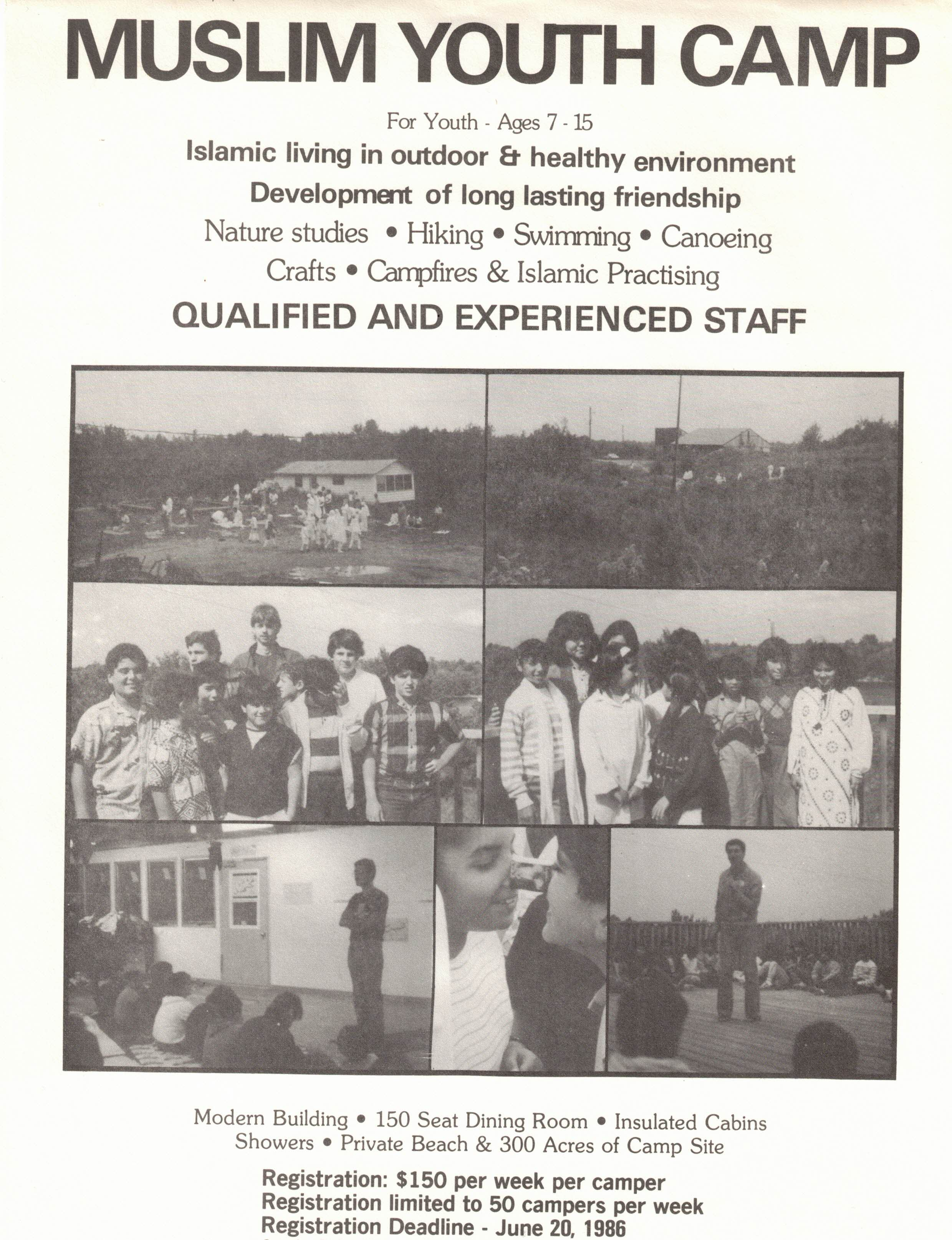 Muslim Youth Camp flyer, 1986, Courtesy of Muinuddin Family fonds (F2024-02)
Muslim Youth Camp flyer, 1986, Courtesy of Muinuddin Family fonds (F2024-02)
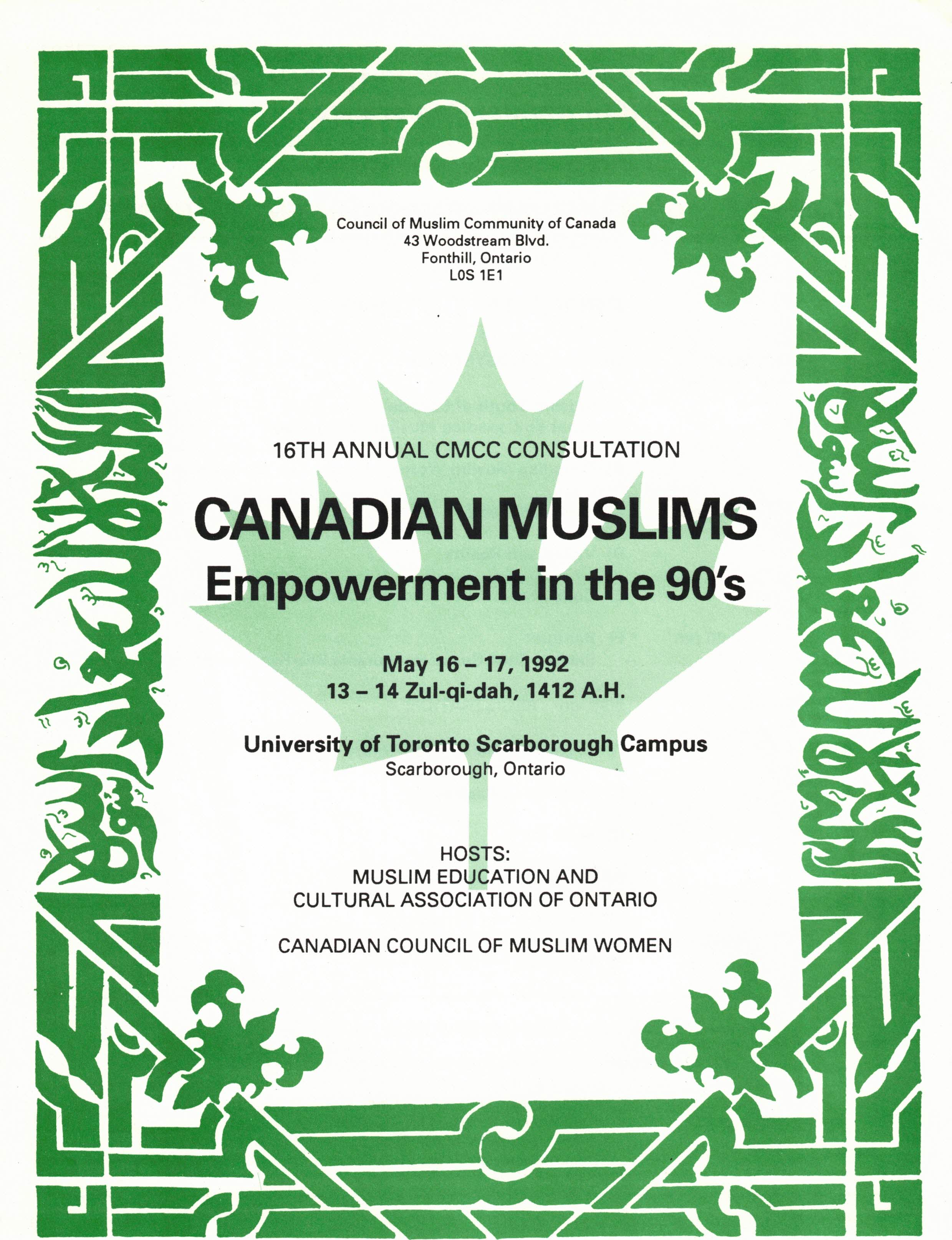 Flyer, annual Council of Muslim Communities of Canada "consultation”, 1992, Courtesy of Muinuddin Family fonds (F2024-02)
Flyer, annual Council of Muslim Communities of Canada "consultation”, 1992, Courtesy of Muinuddin Family fonds (F2024-02)
The Canadian Council of Muslim Women (CCMW) today is a non-profit organization dedicated to advancing the rights and interests of Muslim women in Canada. Before its incorporation in 1982, a women’s committee existed within CMCC. Today the Council of Muslim Women focuses on promoting gender equality, social justice, and inclusivity within Canadian Muslim communities through advocacy, education, and community engagement initiatives. The organization works to empower Muslim women to become active participants in Canadian society while challenging stereotypes and addressing issues such as discrimination, Islamophobia, and gender-based violence.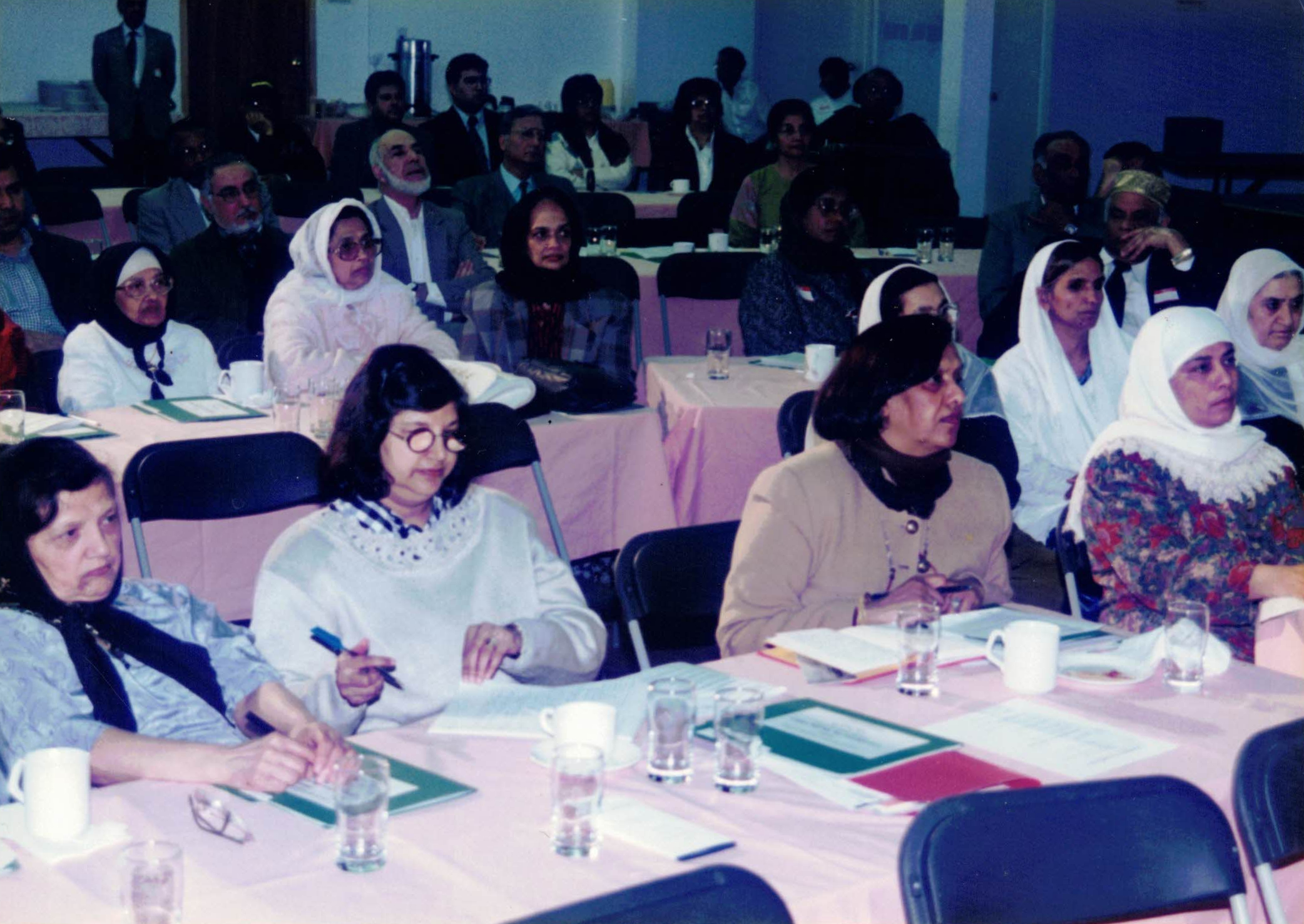 Photograph of Canadian South Asia Club event, Courtesy of Muinuddin Family fonds (F2024-02)
Photograph of Canadian South Asia Club event, Courtesy of Muinuddin Family fonds (F2024-02)
Originally founded as a refugee relief committee, Islamic Development and Relief Foundation (IDRF) is today a Canadian non-profit organization established in 1984. IDRF aims to alleviate poverty and promote sustainable development worldwide, particularly in Muslim-majority countries and communities. Through various humanitarian and development projects, IDRF provides aid in areas such as education, healthcare, clean water, livelihood support, and emergency relief. The organization also focuses on empowering marginalized groups, including women and children, to improve their socio-economic well-being and build resilient communities. Additionally, IDRF emphasizes transparency, accountability, and partnership with local organizations to maximize the impact of its programs. Most recently, IDRF sponsored a special mission of physicians to provide aid on the war on Gaza.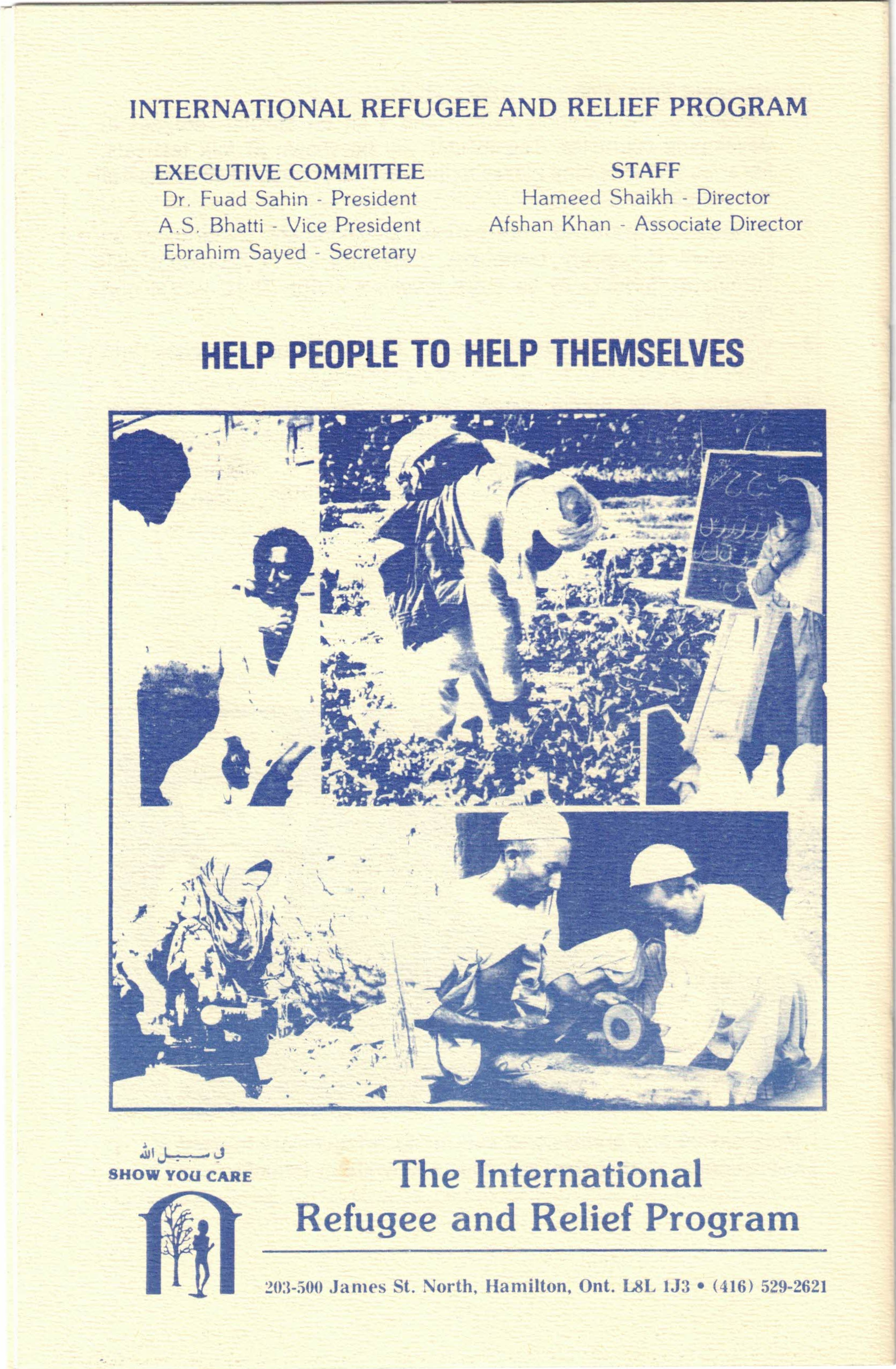 International Refugee Relief Program annual report, Council of Muslim Communities of Canada, 1986, Courtesy of Muinuddin Family fonds (F2024-02)
International Refugee Relief Program annual report, Council of Muslim Communities of Canada, 1986, Courtesy of Muinuddin Family fonds (F2024-02)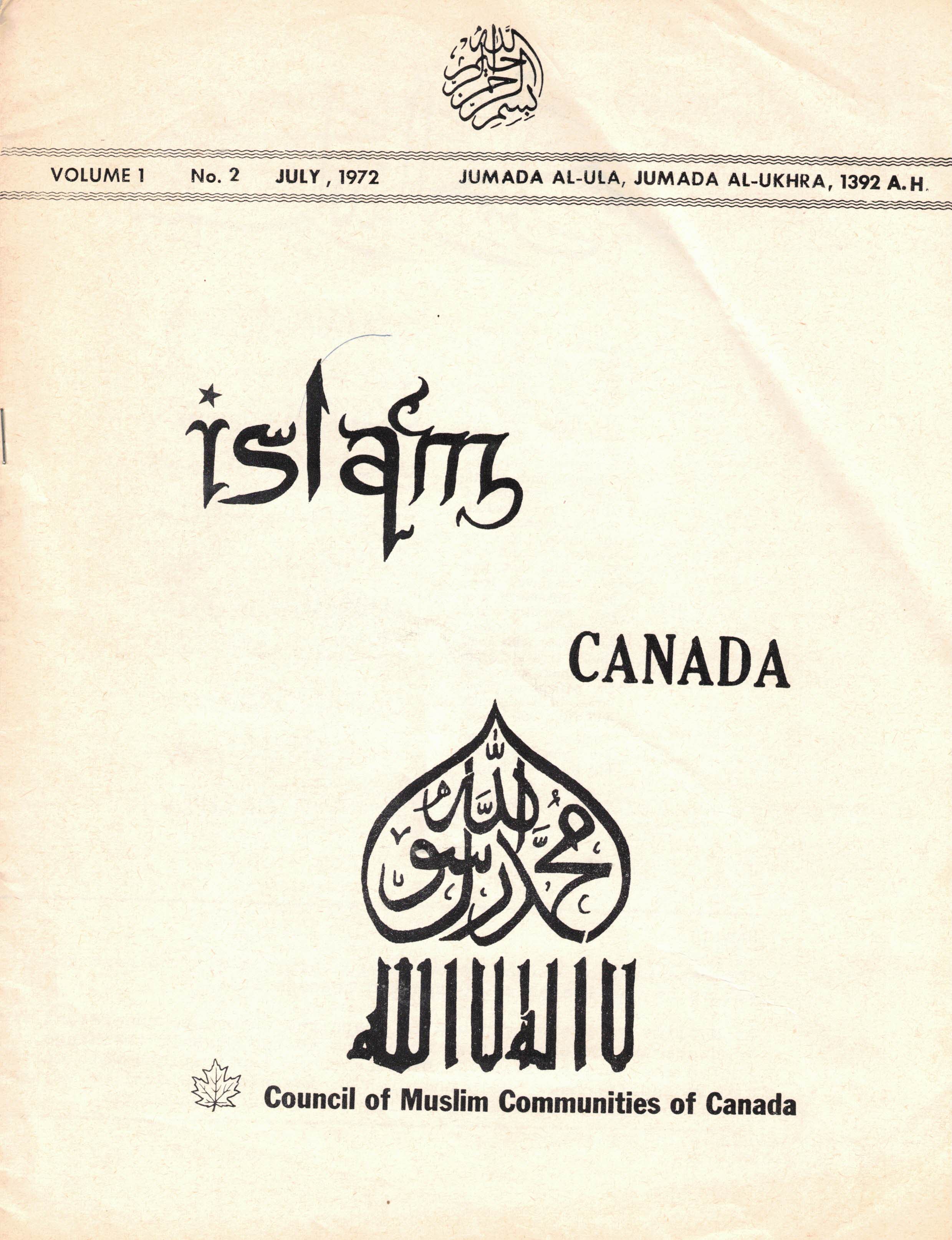
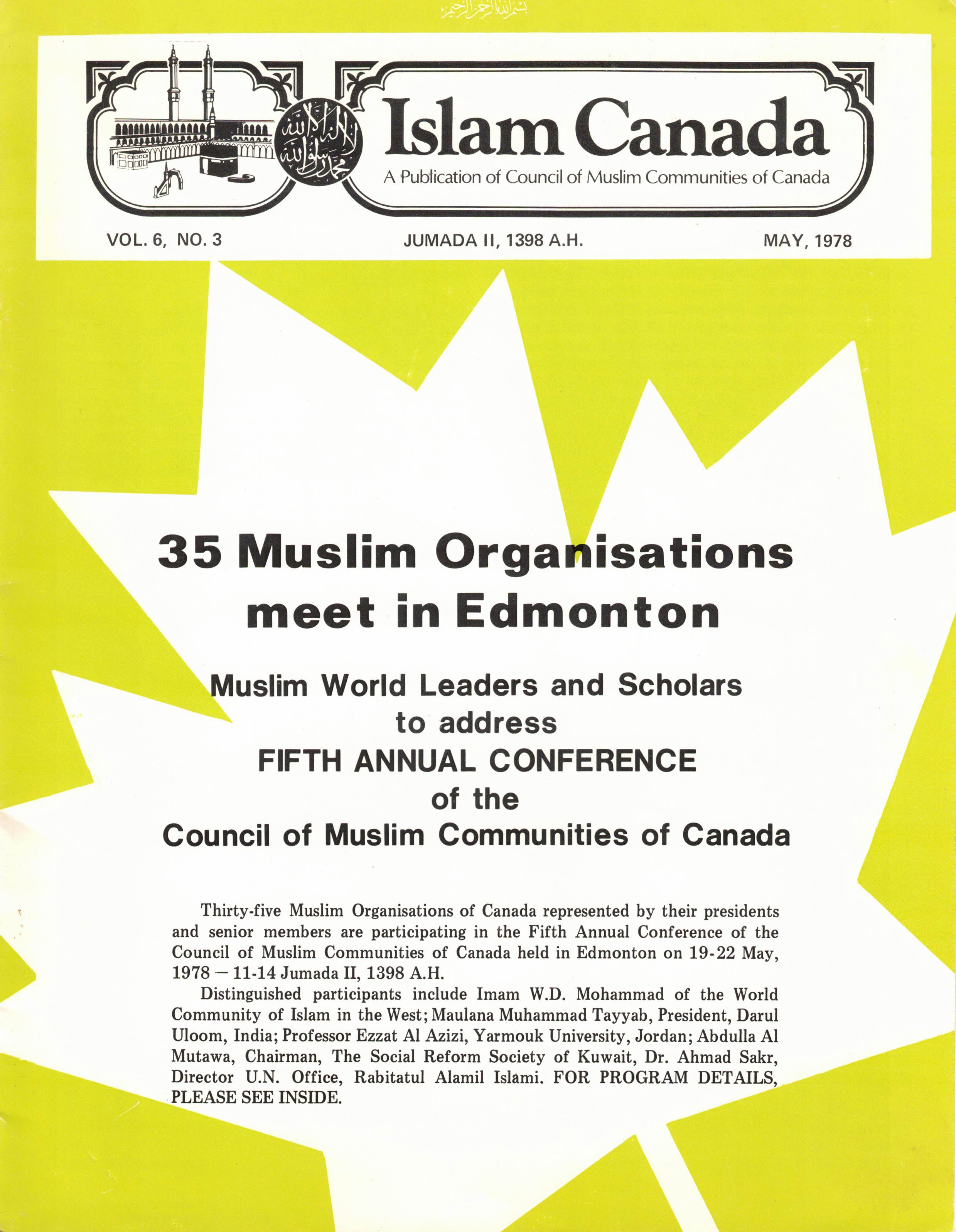 Assorted issues of Islam Canada, published by Council of Muslim Communities of Canada, 1972-1978, Courtesy of Muinuddin Family fonds (F2024-02) and Ahmet Fuad Sahin fonds (F2022-01)
Assorted issues of Islam Canada, published by Council of Muslim Communities of Canada, 1972-1978, Courtesy of Muinuddin Family fonds (F2024-02) and Ahmet Fuad Sahin fonds (F2022-01)
A legacy worth preserving
Throughout its decades long history, CMCC held annual conferences and meetings to foster inter- and intra-faith dialogue, produced countless publications and undertook important advocacy work.
Thanks to large material donations made recently to the Muslims in Canada Archives by Bashir Hussain, the Muinuddin Family, and Sahin Family, hundreds of print materials produced by the Council now exist in the public record and will be available to generations of students and scholars. The types of items that exist across the collections include, articles of incorporation, financial statements and annual reports, special reports, event materials, transcripts, correspondences, serial publications, and photographs. When studied together these primary sources reflect a rich history of Muslim civil society institution building in Canada that is not preserved anywhere else.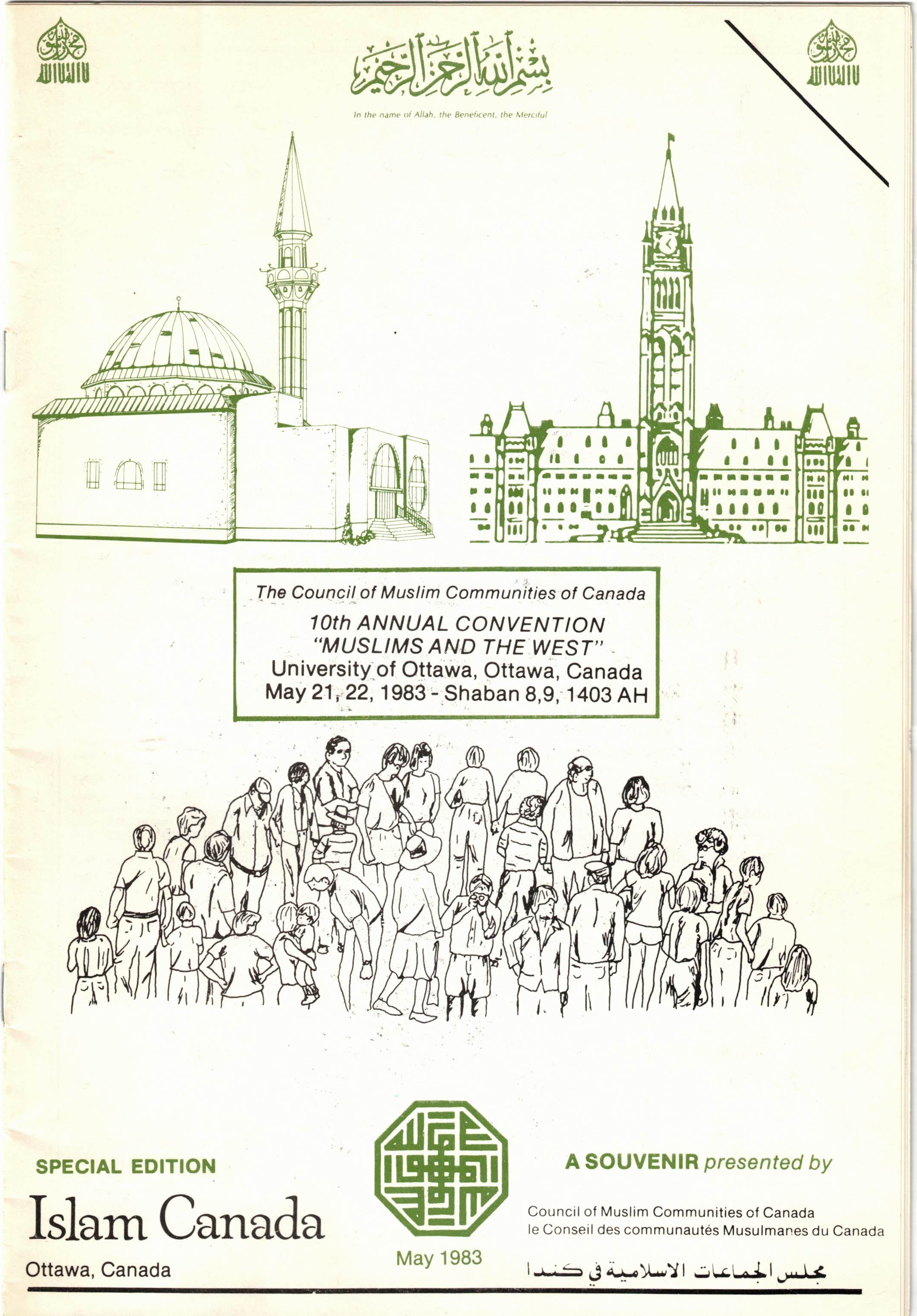 Islam Canada special souvenir edition to commemorate tenth annual Council of Muslim Communities of Canada conference, 1983, Courtesy of Muinuddin Family fonds (F2024-02)
Islam Canada special souvenir edition to commemorate tenth annual Council of Muslim Communities of Canada conference, 1983, Courtesy of Muinuddin Family fonds (F2024-02)